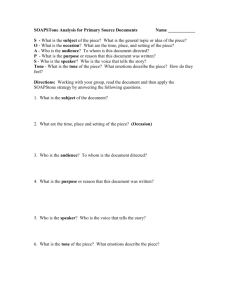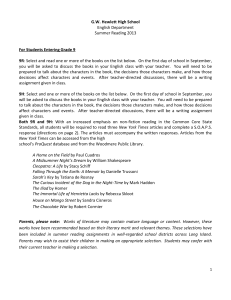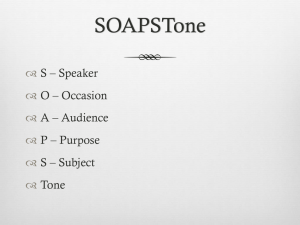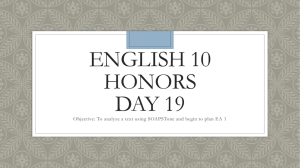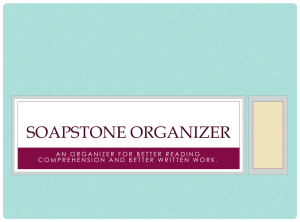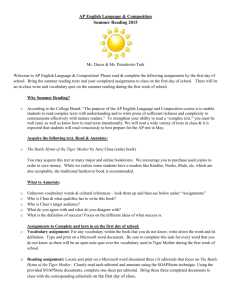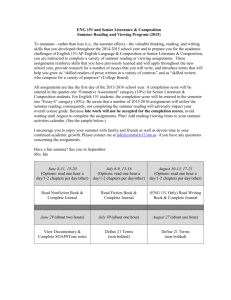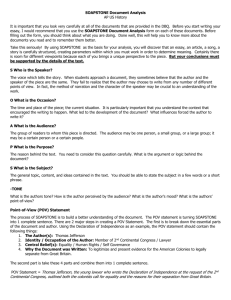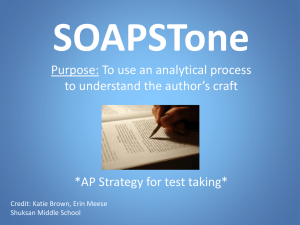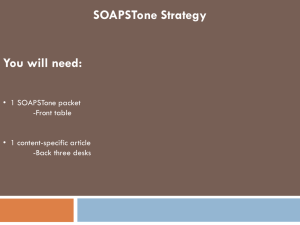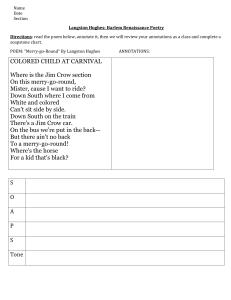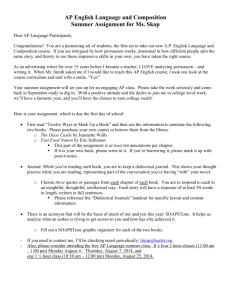Welcome to World Literature and Composition - TJ
advertisement
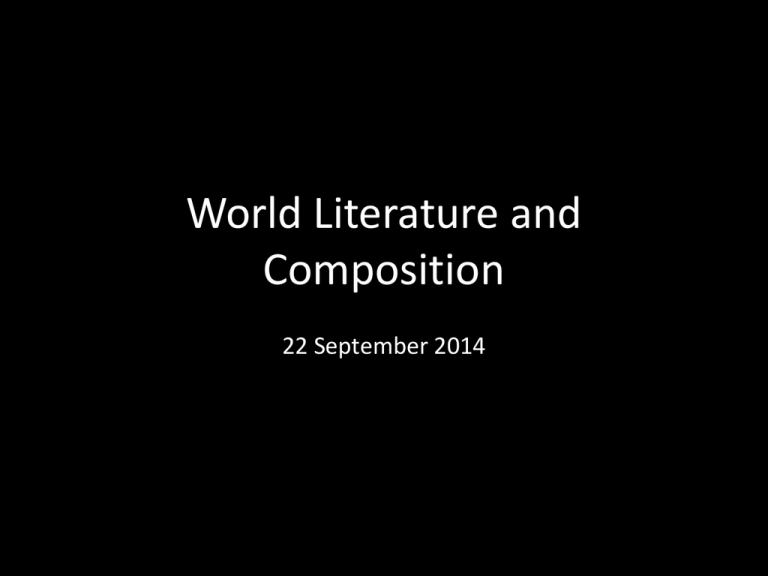
World Literature and Composition 22 September 2014 Content Language Objective • Students identify in writing speaker’s tone and purpose using citation language (Dumas explains, The speaker indicates, Dumas’s tone is) after modeling SOAPSTone strategy, using • Collaborative grouping • Graphic organizer • Guiding questions Warm-up Academic Language North: East: West: Discourse Roles North: East: West: TASK: • Write down two quotes from Funny in Farsi that help you to know who the speaker is. Explain what these quotes tell you about her. Agenda • • • • • • Seating/Attendance/Warmup Learning Objectives Literature Circles Funny in Farsi analysis SOAPSTone activity Wrap-up, reflection on learning objectives Week of 9/22 – 9/26 Lit Circles • Focus on character development. • What are struggles/conflicts the main characters are facing. • How are they responding to this? • Text based predictions? Excerpt from Funny in Farsi • Use the SOAPSTone graphic organizer to help analyze Funny in Farsi • First, read silently the excerpt, annotating the text for significant details that relate to main idea, theme, tone, etc. SOAPSTone Process Groups of 6 (teacher selected) – Use the Active Reading Activities sheet – Number group members 1 to 6 – First we will be focusing on the Speaker and Occasion sections, working individually and then in whole groups – Next we will be working on the Audience, Subject, and Tone sections, working in pairs and then in whole groups – Finally, we will be working on the Purpose section individually SOAPSTone Process • Round one: Look at the questions for Speaker and Occasion that correspond with your number – Skim the text and annotate for text support for your question (you could annotate using a shorthand code, such as S1 for Speaker question 1) – Write down detailed, text-supported responses for each of your questions – Work together as a group to create a comprehensive, text-supported document of the Speaker and Occasion portions of the SOAPSTone SOAPSTone Process • Round two: Working in pairs, complete the Audience, Subject, and Tone sections – 1’s and 2’s work on Audience, 3’s and 4’s Subject, 5’s and 6’s Tone – Skim the text and annotate for text support for your questions (you could annotate using a shorthand code, such as A2 for Audience question 2) – With your partner, write down detailed, textsupported responses for each of your questions – Share your responses with the whole group
